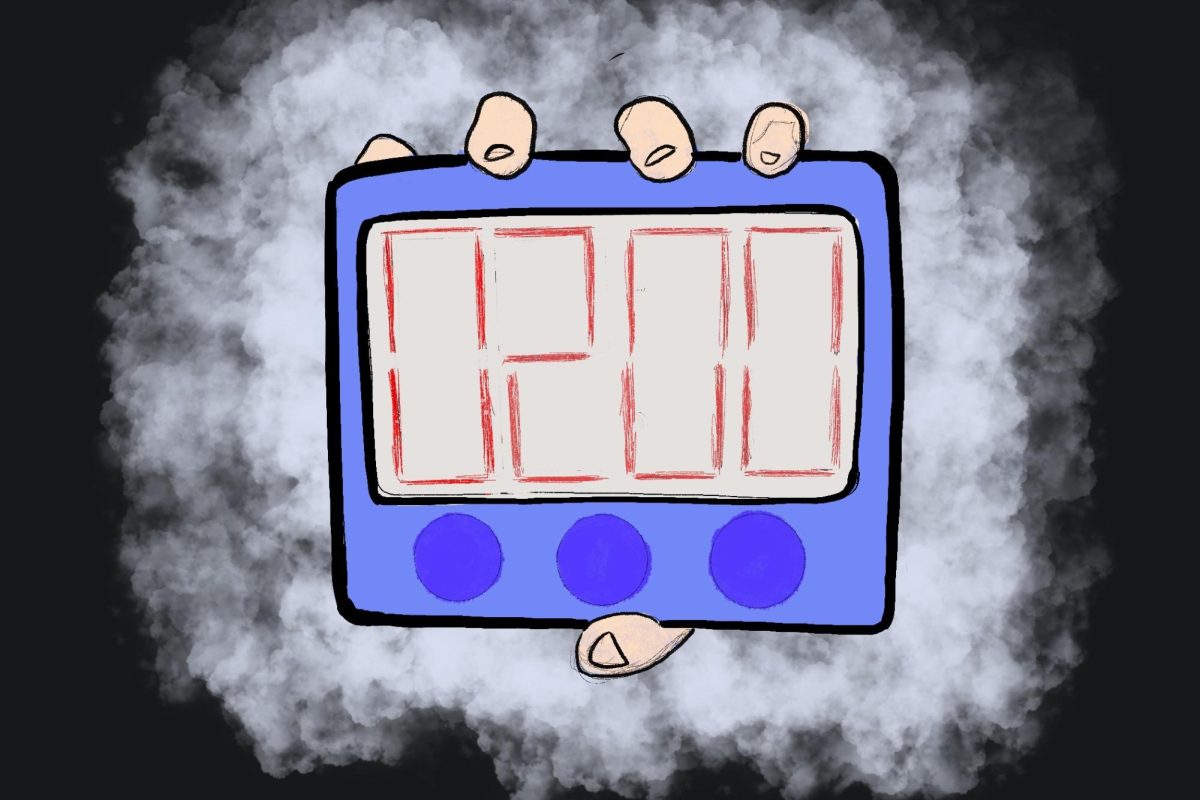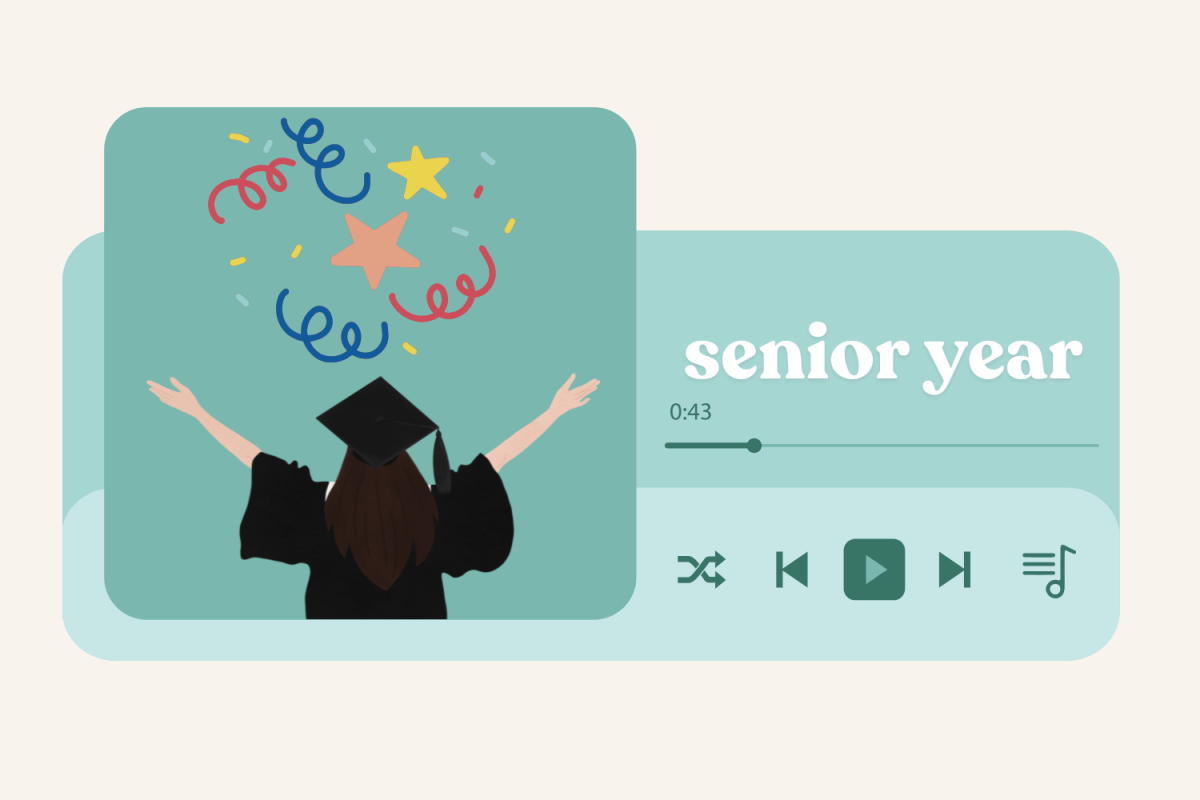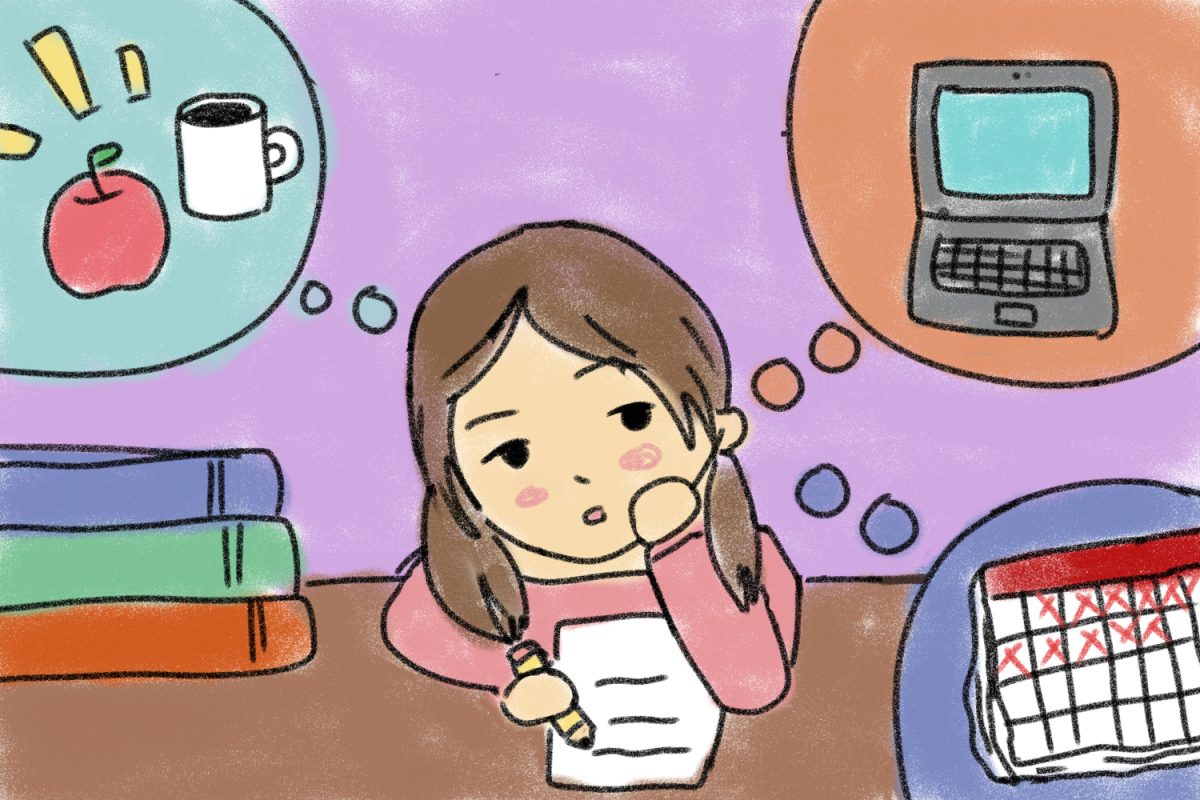Have you ever felt like an ambiguous force physically held you back from being productive? There’s an English essay that’s due tomorrow, but you just can’t seem to get yourself to work on it. Or maybe you want to start going out for a run every morning, but the mere thought of getting out of bed sends a horrified shudder through your body.
To achieve these large tasks, develop much smaller habits and normalize seemingly trivial activities.
Typically, procrastination is rooted in the fear of failing or not enjoying a task. However, avoiding problems isn’t the way to overcome them. Simple processes can help you get past the early stages of procrastination and move forward with productivity.
A useful one is the 2-minute rule, which helps users overcome procrastination and start doing something. To apply this rule, you have to start a section of the activity that takes only two minutes. For instance, if you want to go outside for a run, put on your shoes and socks first. Then, you’ll automatically be motivated to follow through and get outdoors.
This rule makes it much easier to get things done because it is extremely simple and easy to follow. It breaks down large tasks or potential new habits, and getting started seems much more tangible. Often, getting started is all it takes to create an incentive to move forward.
“I learned about the 2-minute rule in one of my middle school classes,” shared freshman Sofia Avendano. “I thought it was smart and I tried it at home. It makes big assignments seem much smaller and I’m a lot more productive now since I always get started on them quickly.”
Aside from this, there are other simple ways to get over procrastination. Small habits and processes are what’s important. If there’s a huge project coming up, it’s likely you feel overwhelmed. Break it into smaller sections and plan it out first, focusing on the process. The brain absorbs information better if it’s broken up, which decreases the chance of getting overwhelmed, lost, or confused.
In addition, you should focus on the way you work best. If you’re someone who cannot focus for long periods and needs a break in between to go on, you should try the Pomodoro technique.
It’s a popular technique in which you focus on one task for 25 minutes, then write down what you completed and take another five-minute break. This follows the “breaking down” tactic as well, but it also ensures undivided attention for a while. You can enjoy your break, but you’re simultaneously getting more done than usual. Writing down what you accomplished also brings a sense of pride and productivity, and the good feeling encourages you to keep working.
“I use YouTube timers for the Pomodoro technique,” shared freshman Sai Sruthi Banala when asked about her opinion on the technique. “It’s super useful for big tests since I can focus better knowing I’ll have time for other stuff too.”
For some, it may not be the starting of the task that’s a challenge, but how to go about it. Like myself, some may have too many tasks to do and have uncertainty about which ones to complete first. The Eisenhower principle can help with that.
It sorts out different activities into four categories: important and urgent, important and not urgent, unimportant but urgent, and neither important nor urgent. It may be useful to map out all your tasks for the day in this chart, which will help prioritize them.
If something is important and urgent, it’s best to accomplish it quickly. Some examples could be a pending assignment or studying for an upcoming test. Any task that’s important but not urgent should be completed next. Homework assignments or activities for personal enrichment should be a priority for you. Unimportant and urgent tasks could be meeting up with your friends—if these are getting in the way of other tasks, they can be moved aside to a different time or date. Lastly are tasks that are neither important nor urgent, which could be leisure and relaxing time. While these are important for unwinding, they should be the last priority.
Using this breakdown can make it much easier to decide which activities to accomplish first, after which you can apply any other studying techniques to get through it.
All these tactics allow the development of executive functioning skills, which are vital both now and throughout life. By staying organized and focused, you can also maintain your mental health. Now, you’ll have time to balance work, extracurriculars, and personal enrichment. You’ll be self-sufficient and have the capabilities of managing your time and getting things done.
Habits and activities that seem minuscule compared to your other responsibilities may make all the difference and prepare you for the future. Try some of these methods and discover what makes you the most productive!
Design by Arya Desai







